Voting in times of pandemics
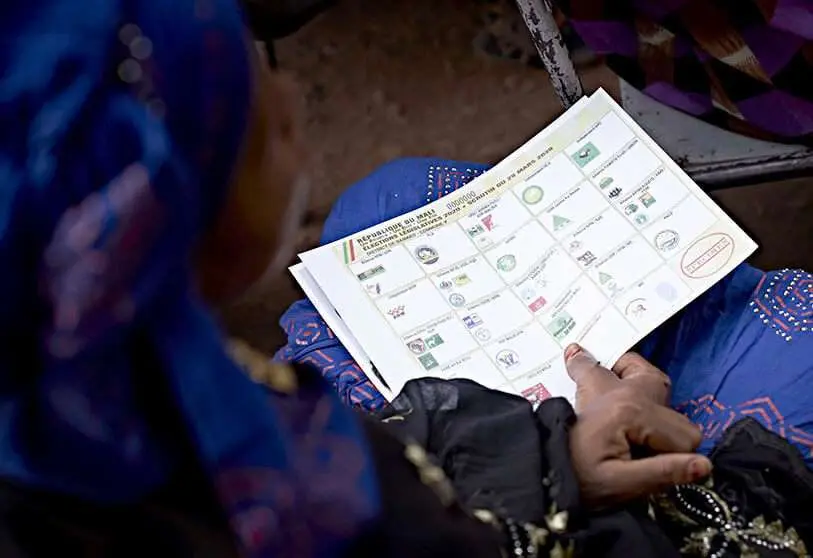
Electoral processes in Africa remain almost constantly fragile. The low levels of democratisation in many countries and the corruption of some political systems, together with sectarian and ethnic violence that is easily found in many others, often make it difficult for elections to take place properly. All of this also leads to a recurrent lack of acceptance of the results, which starts a vicious circle in which socio-political instability, violence and the lack of legitimacy of governments are some of the most common elements.
The spread of the COVID-19 pandemic, although still incipient in Africa today, is already affecting the proper development of democratic life in some countries. Our closest example is France. Despite holding the first round of its municipal elections on 15 March, during the first phases of COVID-19 in Europe, President Macron suspended the second round that was scheduled for Sunday 22 March. It is impossible not to think, therefore, of the consequences that the spread of the virus may have on the electoral processes of the African countries that are called to the polls in the coming days, weeks and months. The weakness of healthcare systems in the majority of countries on the continent is worrying; the lack of access to running water or to proper hygiene in many areas are other aspects that increase the risks that the population will run, if the elections that are coming up are finally held.
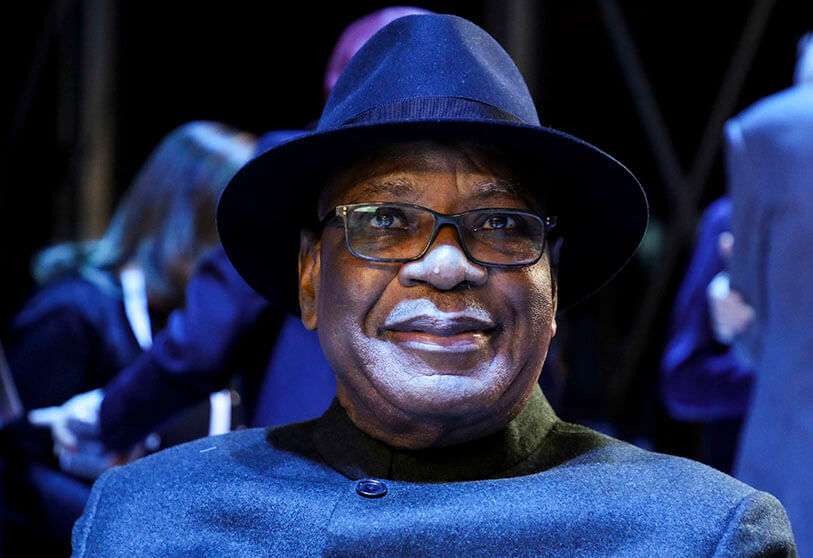
The nearest election is the one in Mali. The first round of the legislative elections, which for the moment are being held on Sunday 29th, will have an added risk this time. In addition to the almost normalised violence in several areas of the country, the first cases of coronavirus have been confirmed and made public on Wednesday. The two people who tested positive, as indicated in the statement by Malian government spokesperson Yaya Sangaré, are Malians who would have arrived from France in mid-March. In any case, neither this news, nor the request by various opposition parties and civil associations to the government and the Constitutional Court to consider a delay, seems to have affected the possibility of suspending Sunday's meeting.
The situation in the country, despite warnings about scarce health resources for such an epidemic, is one of relative normality on a day-to-day basis. Mali was able to contain the Ebola epidemic that occurred in West Africa in 2014 despite its limited resources. However, the overflow that countries such as Italy and Spain are experiencing, with a much more consolidated health system, should invite prevention. The second round of this legislation is scheduled for April 19, so it would not be surprising if it were to be cancelled in the face of a possible increase in cases.
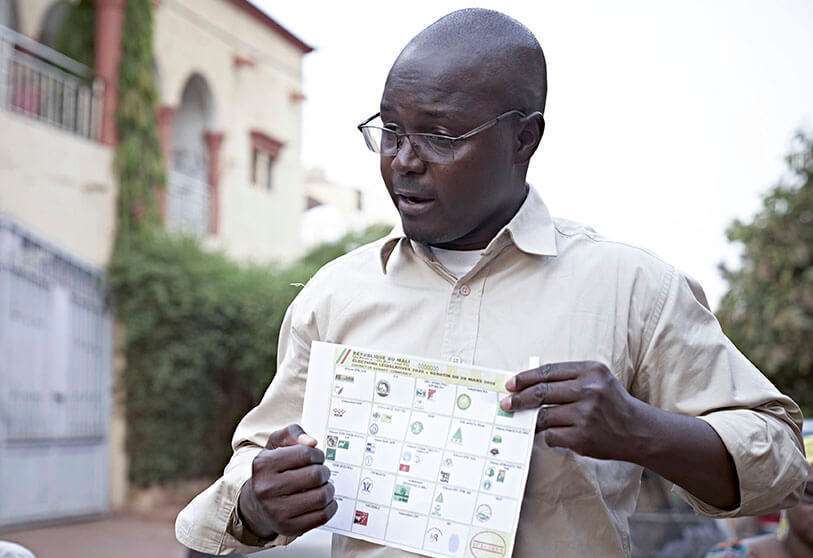
The next elections to be held in Africa should be held on 17 and 20 May in Benin and Burundi respectively. In the case of Benin, the country is holding municipal elections. In Burundi, the country will hold general and presidential elections. Both Benin and Mali have hardly any positive cases of coronavirus. Alongside the two from Mali mentioned above, there are five more in Benin as these lines are being written. The case of Burundi is even more favorable, with no positive cases reported so far.
However, although border controls and airspace closures have been carried out before there was a greater number of infections in these countries, unlike in the cases of Spain or Italy, the surrounding countries are beginning to be affected, although still far from the figures for Egypt and South Africa. This is the case of Burkina Faso, Democratic Republic of Congo or Rwanda, so it would not be surprising if, although more slowly, the COVID-19 were to spread over the next few weeks also through these countries called to the polls. In Burundi, the election date is particularly important. The country will have to elect a new president after the current one, Pierre Nkurunzinza, who has been in power since August 2005, is unable to go to the polls again. Suspending or delaying this appointment could be understood by part of the population as a way of stretching his mandate at the head of the country in the Great Lakes region.
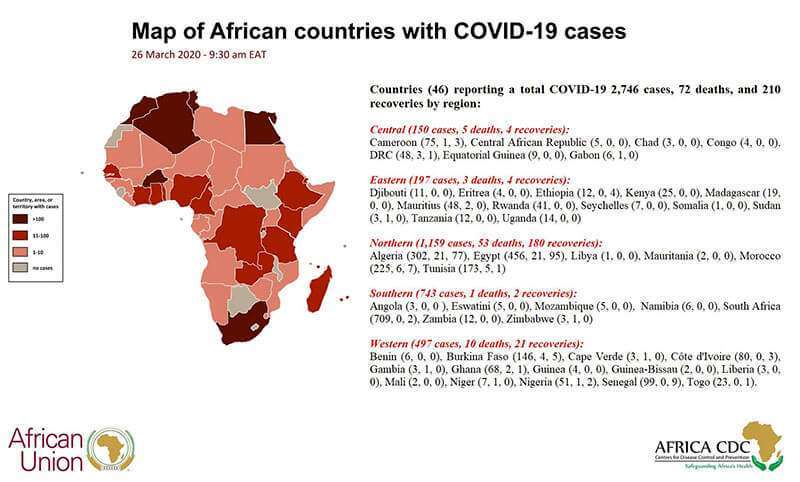
It is impossible to predict how the coronavirus pandemic will affect the African continent, although there are countries that are beginning to show significant numbers of infections, such as Egypt and South Africa, but also Algeria, Tunisia, Morocco and Burkina Faso. It is also difficult to predict how long contagion will last, or whether it will be contained, on a continent with limited health infrastructures and resources, in a short space of time. Depending on the progression, greater restrictions on the daily life of countries will be implemented, just as in countries that are already suffering from it.
As has been said, this is a year in which Africa must undertake some key electoral processes. The cases of Mali and Burundi, with particularly sensitive contexts, have already been cited, but those are only the closest in time. Other countries that will also have to go through the ballot boxes and with situations of great fragility, apart from the aggravation that the coronavirus may represent, are Burkina Faso, Niger, Central African Republic, Somalia - with a historic electoral date in five decades -, Ethiopia - where the Nobel Peace Prize winner Abiy Ahmed is risking re-election in an environment where sectarian struggles are increasing -, Chad or Egypt.
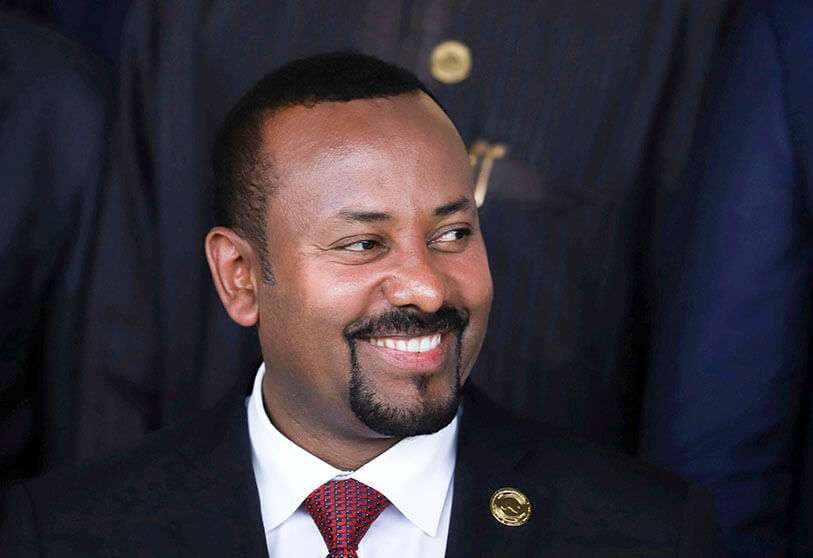
Apart from these, whose situation may be more vulnerable, countries such as Namibia, Ivory Coast, Tanzania or Senegal will also have electoral events throughout 2020. While it is true that many of these dates are concentrated towards the end of the year and, therefore, if one is optimistic, perhaps the coronavirus will not have a direct impact on their development, it is not unreasonable to suggest that the way in which this pandemic is managed by African governments may have an effect on the way their societies vote. The post-COVID-19 world will be very different from that of just a couple of months ago. How geopolitical dynamics, relations between countries or social behaviour will be affected is still uncertain.
What is clear is that the booming African continent will not be immune to the virus, nor to the way it affects all these elements, both in the international system and in the internal workings of countries.








